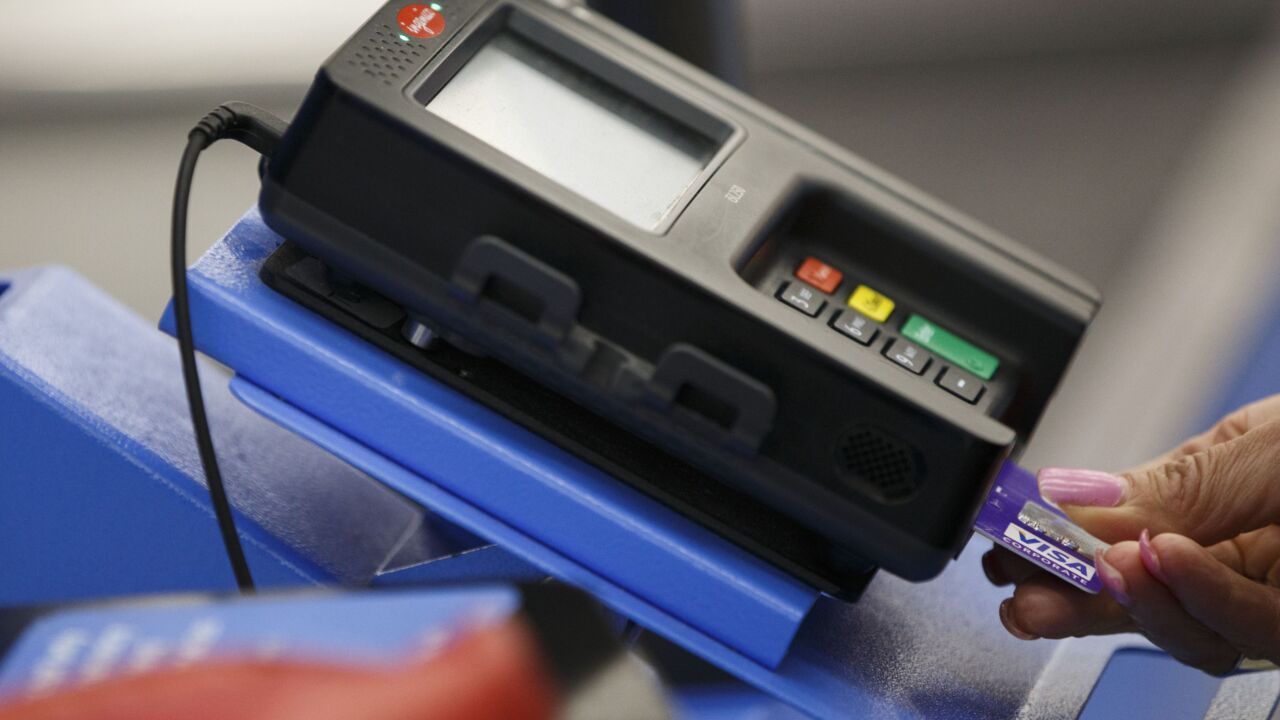Credit cards
Credit cards
-
American Express hired Taylor to oversee its efforts to entice more U.S. merchants to accept the firm's cards.
September 10 -
The industry saw small gains in many loan categories during the second quarter, but credit cards declined. A new study from WalletHub shows the biggest quarterly drop in credit card balances in over 30 years.
September 9 -
Discover is working to help Black-owned businesses and other merchants maintain foot traffic — safely — through the use of the card network's payments technology and its marketing heft.
September 3 -
There is a war brewing in the buy now, pay later (BNPL) market, and Mastercard is working with TSYS to bring in a slew of new players — credit card firms.
September 2 -
Visa Inc. said overall spending on its cards by U.S. consumers climbed in July and August even after elevated unemployment benefits expired.
September 2 -
American Express is fine-tuning the credit options available to small-business owners squeezed by coronavirus and the economic slowdown.
September 1 -
Capital One Financial is reining in credit lines to reduce its exposure while the nation’s largest card issuer, JPMorgan Chase, is rolling out a new card designed for travelers and diners.
September 1 -
Visa and JPMorgan Chase & Co. are in the middle of a 10-year merchant services agreement that gives Chase merchants certain advantages with the expected goal of favoring Visa card volume. But it’s not an exclusive arrangement.
August 31 -
Some customers have complained of limits being slashed by one-third to two-thirds, eroding their ability to borrow in an emergency during a pandemic or potentially hurting their credit scores.
August 28 -
Some customers have complained of limits being slashed by one-third to two-thirds, eroding their ability to borrow in an emergency during a pandemic or potentially hurting their credit scores.
August 28











